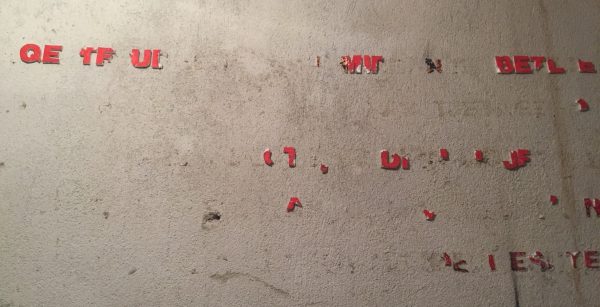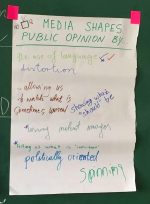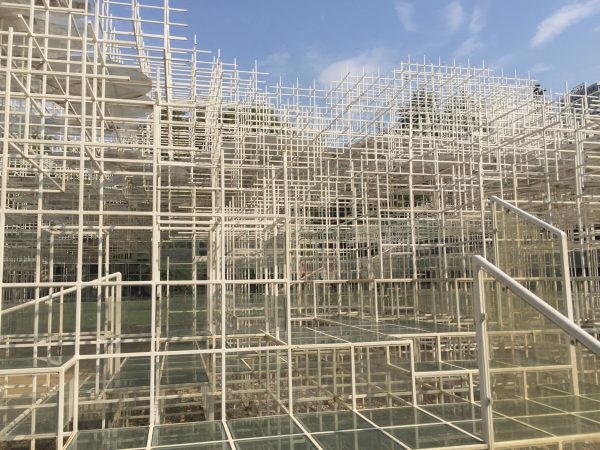
Going Beyond Conflict, Corruption, and Coffee Culture: Why Words Matter in the Balkans and Elsewhere
By Megan Duffy, MALD 2021 Candidate, The Fletcher School
All regions of the world suffer from stereotypes that paint inaccurate, incomplete, and even harmful pictures of certain groups, ideologies, or countries, but the Western Balkans is a particularly hyper-caricatured corner of the globe. This part of Southeastern Europe includes Albania, Bosnia and Herzegovina, Croatia, Kosovo, Montenegro, North Macedonia, and Serbia. While these nations are diverse, home to numerous languages, cultures, and religions, they often find themselves represented as a simple monolith or described in hyperbolic terms. A particularly popular narrative presents the peninsula as a dysfunctional collection of quarreling neighbors or divided citizens ready to capitalize on “ancient hatreds,” a phrase infamously penned in Robert D. Kaplan’s 1993 book, Balkan Ghosts.
To this day, academics, politicians, and others use the term “balkanization” to refer to the disorderly or unpredictable fragmentation of something. In November 2020, The Economist tweeted the line, “A civil war could lead to the balkanization of Africa’s second-most populous country,” in reference to the conflict in Ethiopia. More recently, those including journalists and former diplomats made trite comparisons between the January 6, 2021 attack on the U.S. Capitol and the Balkans. Many people from the Balkans found this particular equation insulting and generally deem the balkanization term offensive, as it perpetuates a stereotype that the region is doomed to endless turmoil. Furthermore, this affects how the international community engages with these countries and has real-life implications for the people living there. For example, believing that different ethnic groups cannot live together peacefully within the same territory leads to international leaders supporting dangerous policies like land swaps between Kosovo and Serbia, which gained traction in 2018. The same thinking also gives legitimacy to politicians like Milorad Dodik, the Serb member of the Presidency of Bosnia and Herzegovina, who regularly threatens Republika Srpska’s secession from the country due to an inflated depiction of discrimination against Serbs. On the other hand, simply believing that regional disputes are about land and control of resources produces empty pledges that are merely politically advantageous, like the economic agreement signed during a 2020 US-convened summit to resolve issues between Serbia and Kosovo.

Walls of the Cold War Tunnel in Gjirokastra, Albania (August 2019)
It is true that the Western Balkans face daunting challenges, but their realities are more nuanced than the regular sound bites broadcast to the world outside their borders. The region suffers from a polarizing political elite, unfinished transitional justice, and structural barriers to progress and equality. However, narratives like “corruption is cultural” or “group divisions have been cemented for centuries and dominate all aspects of life” are untrue. In fact, 2020 polling conducted by the International Republican Institute showed that in contrast to beliefs that Bosnia and Herzegovina is a country ravaged by these so-called ancient hatreds, the most pressing issues for Bosnians today are unemployment, cost of living, corruption, and poverty, not fears of return to ethnically-tinged conflict.
As an American researcher, I spent a lot of time thinking about how I was representing the Western Balkans while writing a report on Russian influence and disinformation trends in the region. My coauthor, Samuel Green, and I attempted to depict the situation in our case countries accurately, which meant pushing back on preconceived narratives about the Balkans and Russia and digging into how domestic actors manipulate the information space. We also tried to show the seriousness of the disinformation problems without sensationalizing the issues or playing into false tropes about the Balkans or Russia. We all like catchy titles and quips (and I thoroughly enjoy writing them), but these should not come at the expense of representing a situation factually.

Brainstorm session from the Applied Drama Institute in Tuzla, Bosnia and Herzegovina (June 2019)
Another reason why words matter is respect: respect for the people and places one writes about. As researchers, it was important to try to use the appropriate terms when referencing the names of countries, group identities, places, events, political parties, etc. For example, when studying North Macedonia, we spoke to a variety of Macedonians about terminology. We also chose to use the appropriate diacritical marks on names and places, often left out in other publications. We understand that we will never completely satisfy everyone but nonetheless spent significant time on this particular aspect of our project. Coming from the United States, I know that many people lament the increasing pressure to be “politically correct,” but learning and trying to comply with how groups would like to call themselves is not too much to ask. At the same time, we also recognize the importance of avoiding the use of nationalistic terms employed by some of the region’s leaders. A lot of linguistic gymnastics take place when you write about the Balkans, but it is worth the effort. Additionally, we made a concerted effort to speak to as many locals as possible and highlight local journalists and experts as they have a better idea of what is happening on the ground.

Marubi National Museum of Photography poster in Shkodra, Albania (January 2018)
I consider myself a bit of a Balkanista, someone who has spent substantial time living in the region, learning the languages, studying the history, and falling in love with its countries. Still, I am not from the Balkans and am never going to perfectly represent its complex issues, especially not an issue as complicated as disinformation. However, in an era of intense polarization, including in countries like my own, it is that much more important that researchers to go beyond the punchy one-liners to represent our research subjects and their realities with nuance and accuracy. Finally, the way we write affects not only how others view a region but also how powerful players work with, invest in, and approach policymaking in places like the Western Balkans and beyond.

Reja “The Cloud” sculpture in Tirana, Albania (August 2019)
I would like to thank the Russia and Eurasia Program for its support of our research. To read our full report titled, “Organised Chaos: Russian influence and the current state of disinformation in the Western Balkans,” please click here.
